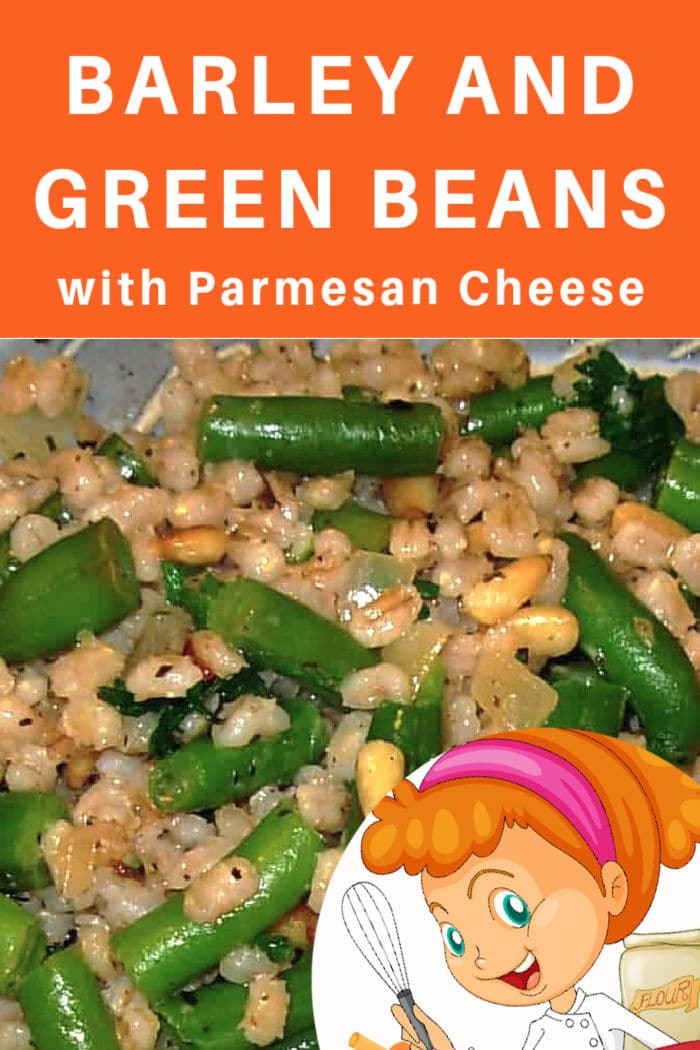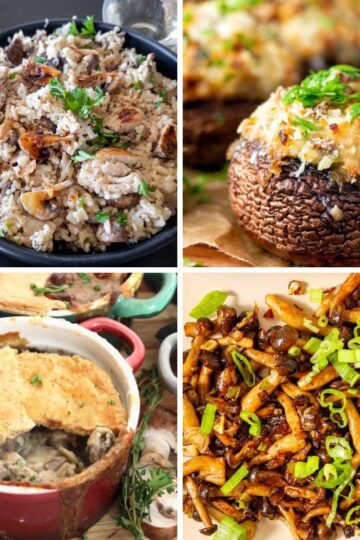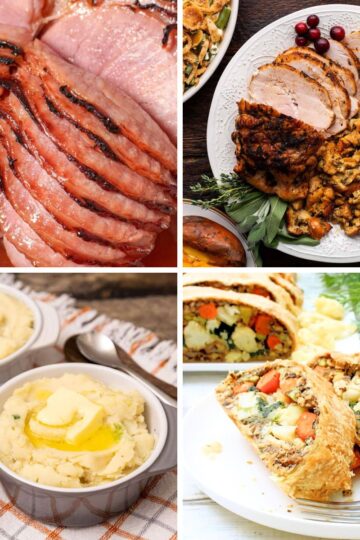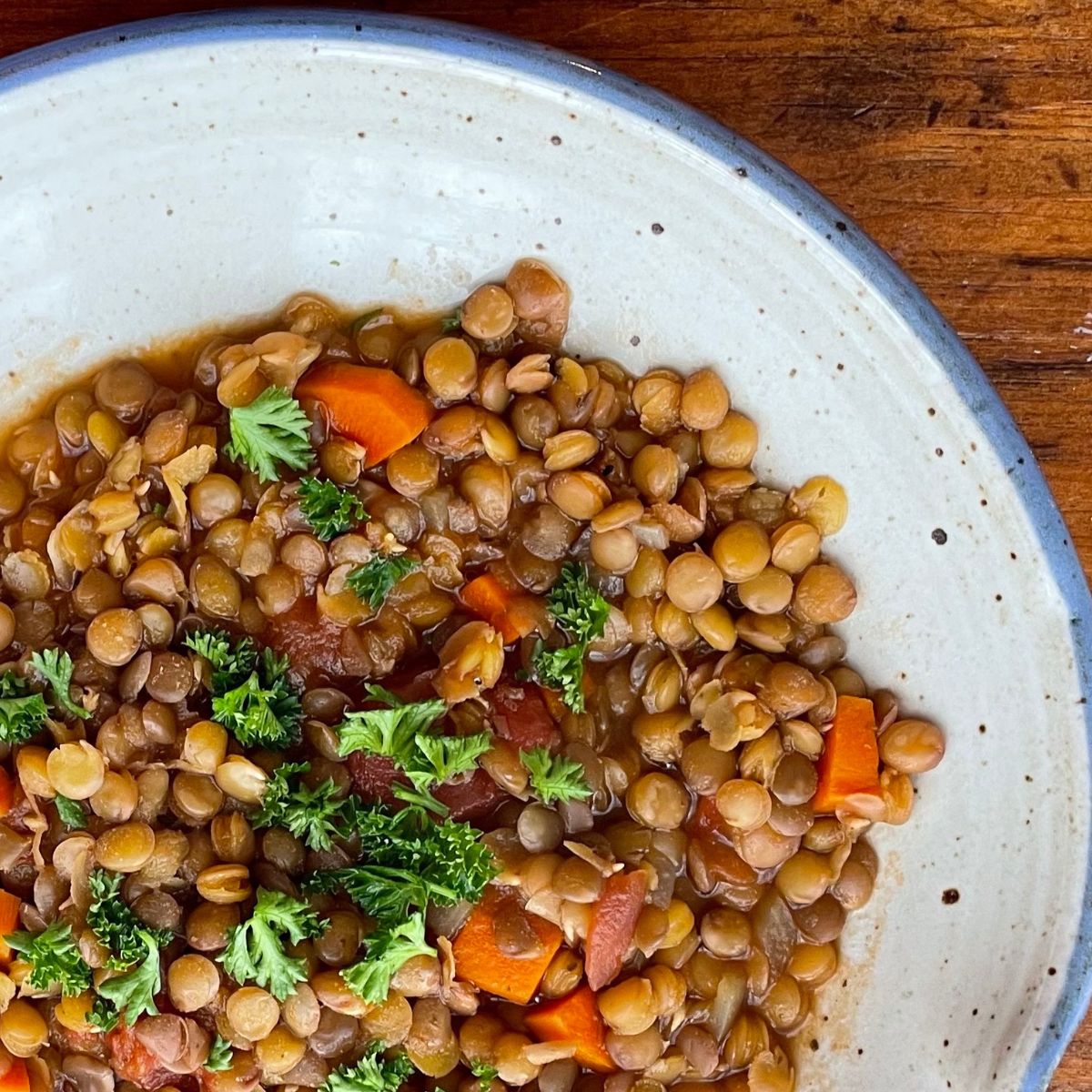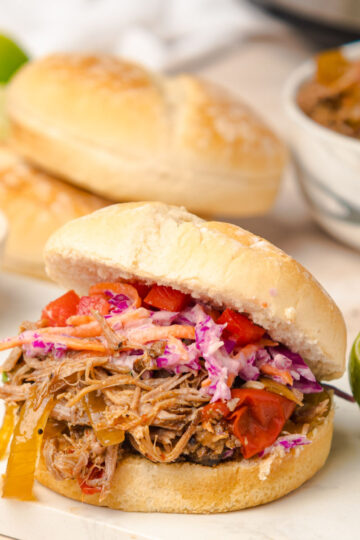This filling and scrumptious barley and green bean casserole, featuring parmesan cheese and pine nuts, takes less than one hour to prepare.
Sometimes, I make this dish to accompany grilled salmon. The cheese makes it extra yummy. I use Pecorino Romano, a stronger-flavored sheep's cheese similar to parmesan. If you prefer parmesan cheese, it is just as tasty
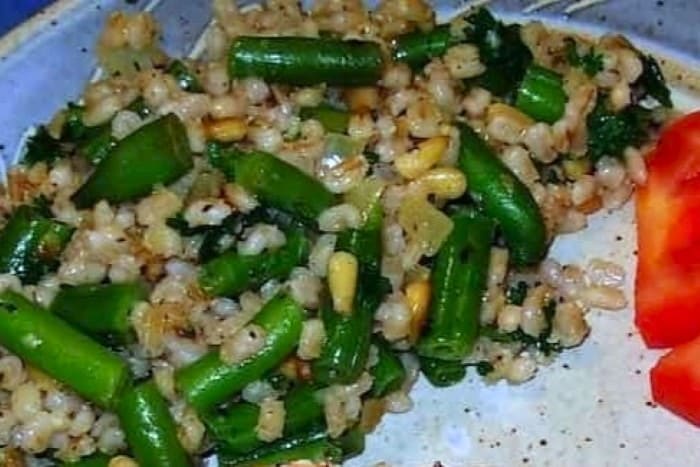
What You Need
You need knives, a cutting board, measuring cups and spoons, and a set of good pots for this recipe. Buy the best you can afford and you'll never be sorry.
Barley with Green Beans and Parmesan Cheese
This recipe is from my Superfoods cookbook by Dolores Riccio. I love this cookbook. The recipes in it are always delicious, and this one was no exception.
Ingredients:
- ½ cup pearl barley rinsed and drained
- 1 pinch salt
- 1 tablespoon olive oil
- 1 small onion chopped
- 10 ounces fresh or frozen green beans trimmed, sliced, and steamed to tender-crisp
- ¼ teaspoon dried oregano
- ¼ teaspoon dried basil
- ¼ teaspoon black pepper
- 2 tablespoons grated Parmesan cheese or Pecorino Romano cheese
- 1 tablespoon minced fresh parsley
- 2 tablespoons pine nuts toasted
Instructions:
- In a medium pot, add 1 quart of water and the salt.
- Bring the water to a boil and add the barley.
- Reduce the heat to medium-high and continue to boil the barley until the grains are tender but not mushy (about 35 minutes).
- Drain, but reserve a few tablespoons of the liquid if you need to add it at the end to reheat the dish.
- Heat the oil in a skillet or saucepan.
- Sauté the onion in the oil until softened.
- Add the spices (oregano, basil, pepper) and stir.
- Add the green beans and barley and stir to combine.
- Toast the pine nuts under your broiler or in a dry skillet on the stove. Watch them carefully and remove them when they first start to turn a little brown. They burn easily!
- Add the parsley, toasted pine nuts, and cheese to the casserole and stir to combine.
- Heat over medium heat for a minute or two and serve hot immediately.
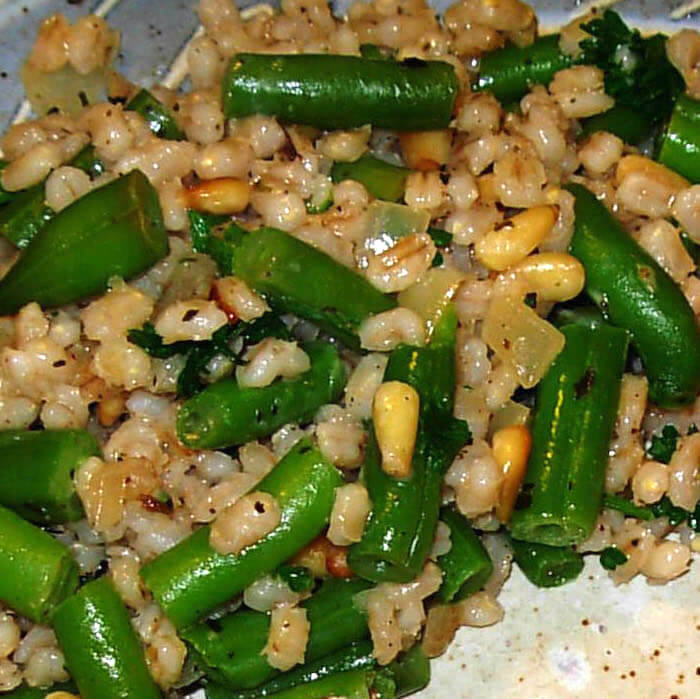
Barley Green Beans, tasty & diabetic friendly
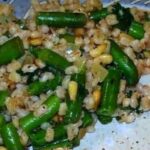
Barley and Green Beans Parmesan Cheese
Author: Recipe Idea Shop
Ingredients
- ½ cup pearl barley rinsed and drained
- 1 pinch salt
- 1 tablespoon olive oil
- 1 small onion chopped
- 10 ounces fresh or frozen green beans trimmed, sliced and steamed to tender crisp
- ¼ teaspoon dried oregano
- ¼ teaspoon dried basil
- ¼ teaspoon black pepper
- 2 tablespoons grated Parmesan cheese or Pecorino Romano cheese
- 1 tablespoon minced fresh parsley
- 2 tablespoons pine nuts toasted
Instructions
- In a medium pot, add 1 quart of water and the salt.
- Bring the water to a boil and add the barley.
- Reduce the heat to medium high and continue to boil the barley until the grains are tender but not mushy (about 35 minutes).
- Drain, but reserve a few tablespoons of the liquid in case you need to add it at the end to reheat the dish.
- Heat the oil in a skillet or saucepan.
- Sauté the onion in the oil until softened.
- Add the spices (oregano, basil, pepper) and stir.
- Add the green beans and barley and stir to combine.
- Toast the pine nuts under your broiler or in a dry skillet on the stove. Watch them carefully and remove them when they first start to turn a little brown. They burn easily!
- Add the parsley, toasted pine nuts and cheese to the casserole and stir to combine.
- Heat over medium heat a minute or two and serve hot immediately.[
Nutrition (may vary depending on ingredients and amounts used)
Other Recipes To Try

